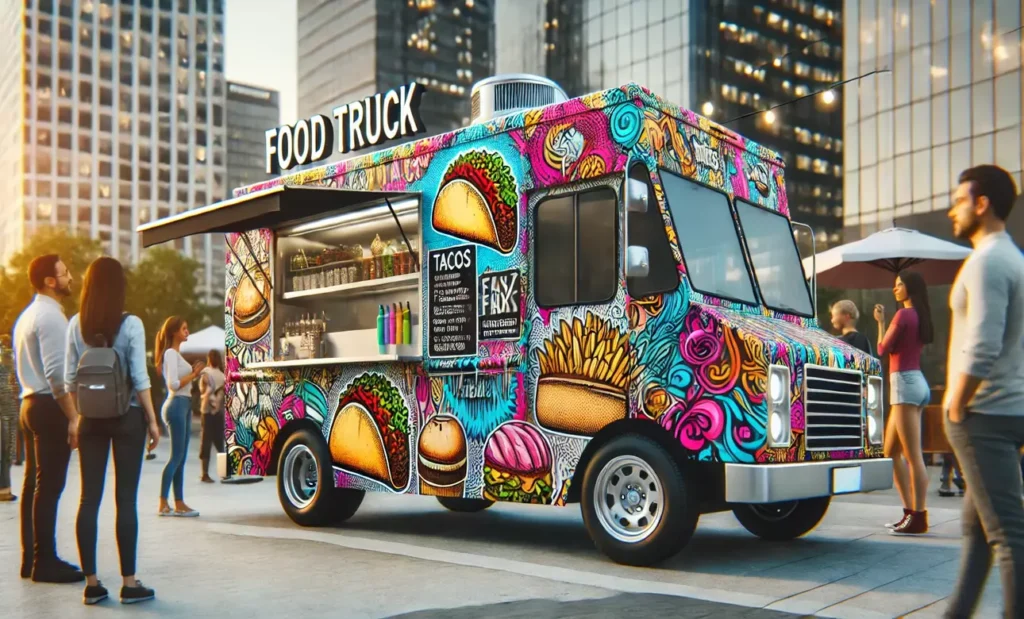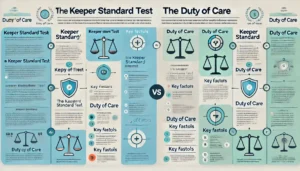How to Start a Food Truck Business

Launching a food truck business is a thrilling endeavor that merges culinary innovation with the drive of entrepreneurship. You will learn how to start a food truck business successfully with our comprehensive guide. From planning and budgeting to marketing and operations, get all the tips you need. The food truck industry has increased, offering unique dining experiences to customers. Food trucks provide:
- Flexibility.
- Reduced initial investment compared to opening a conventional brick-and-mortar eatery.
- The ability to bring food directly to customers.
- Market Research
- Creating a Business Plan
- Blueprint for Launching a Food Truck Business
- Budgeting and Funding
- Choosing the Right Food Truck
- Licenses and Permits
- Menu Planning
- Setting Up Operations
- Insurance Requirements
- Branding and Marketing
- Launching Your Food Truck
- Daily Operations Management
- Navigating Legal Challenges
- Scaling Your Business
- FAQs About Starting a Food Truck Business
- Conclusion
Market Research
Before diving into the food truck business, conducting thorough market research is crucial. Start by identifying your target customers. Take into account demographics like age, income, and lifestyle. Look into customer preferences, including the types of cuisines they enjoy and dining habits. This information will assist you in customizing your menu and marketing strategies effectively..
Next, analyze competitors in your area. Visit other food trucks and observe their operations. Please take note of their strengths, such as popular menu items and efficient service, as well as their weaknesses, like long wait times or limited variety. Knowing your competitors allows you to recognize what differentiates your food truck and identify areas for improvement.
Assess current market trends to spot opportunities and challenges. For instance, there’s a growing demand for healthy, organic, and vegan options. If your menu can cater to these trends, you might attract a broader customer base. Conversely, be aware of potential challenges, such as economic downturns, that could impact discretionary spending on dining out.
Utilize resources like industry reports, customer surveys, and social media insights to gather data. Websites like Food Truck Empire and industry publications can provide valuable information on market conditions and consumer behavior. Comprehensive market research will guide your business decisions, helping you create a food truck concept that meets customer needs and stands out in a competitive market.
Creating a Business Plan
A strong business plan forms the backbone of your food truck venture. Start by defining your food truck concept. Decide on the type of cuisine you’ll serve and identify your unique selling points (USPs). These could be anything from a signature dish to a distinctive theme or customer service approach. Clearly articulating your concept helps in creating a cohesive brand and attracting your target market.
Create financial projections to assess startup expenses, revenue, and potential profitability. Include detailed calculations of initial expenses such as purchasing or leasing a truck, kitchen equipment, permits, and initial inventory. Project your expected monthly operating costs, including food supplies, fuel, maintenance, and wages. Forecast your revenue based on realistic sales assumptions and local market conditions. These projections will help you understand your financial requirements and set achievable goals.
Evaluate your business’s internal advantages, shortcomings, external prospects, and potential risks through a comprehensive SWOT assessment. Strengths include culinary expertise or a prime location, while weaknesses could be limited initial capital or lack of experience. Opportunities might involve local food festivals or partnerships, whereas threats could include stringent local regulations or intense competition. A thorough SWOT analysis helps in strategic planning and risk management.
Blueprint for Launching a Food Truck Business
Executive Summary
- Business Name: Gourmet Street Bites
- Concept: A gourmet food truck offering high-quality, locally sourced, and innovative street food.
- Mission: To provide delicious, fast, and healthy meals with a focus on sustainability and community engagement.
Business Description
- Cuisine Type: Fusion street food combining elements of various culinary traditions.
- Unique Selling Points: Sustainable packaging, locally sourced ingredients, and a rotating seasonal menu.
Market Analysis
- Target Market: Urban young professionals, college students, and health-conscious individuals.
- Competitor Analysis: Key competitors include other local food trucks and fast-casual restaurants. Strengths include unique menu items and a solid social media presence; weaknesses include limited operational hours.
SWOT Analysis
- Strengths: Culinary expertise, high-quality ingredients, strong branding.
- Weaknesses: High startup costs and limited operational experience.
- Opportunities: Growing demand for sustainable and healthy food options, local events, and festivals.
- Threats: Regulatory hurdles and economic downturns affecting consumer spending.
Financial Projections
- Startup Costs
- Food truck purchase: $70,000
- Kitchen equipment: $20,000
- Permits and licenses: $5,000
- Initial inventory: $10,000
- Marketing and branding: $5,000
- Miscellaneous: $5,000
- Total: $115,000
- Monthly Operating Costs
- Food supplies: $8,000
- Fuel and maintenance: $1,000
- Employee wages: $6,000
- Insurance: $500
- Miscellaneous: $1,500
- Total: $17,000
- Revenue Projections
- Average daily sales: $1,000
- Monthly sales: $30,000
Operational Plan
- Truck Operations: Focus on high-traffic areas during lunch and dinner hours. Participate in local events and festivals.
- Menu Development: Regularly update the menu based on seasonal ingredients and customer feedback.
- Inventory Management: Implement an inventory tracking system to minimize waste and ensure fresh supplies.
Marketing and Sales Strategy
- Branding: Develop a strong visual identity with a memorable logo and truck design.
- Social Media: Engage customers through regular updates, promotions, and behind-the-scenes content on platforms like Instagram and Facebook.
- Local Partnerships: Collaborate with local businesses and event organizers to increase visibility.
Budgeting and Funding
Estimating your startup costs is the first step in budgeting for a food truck business. Essential expenses include:
- Purchasing the truck.
- Outfitting it with necessary equipment.
- Securing licenses and permits.
- Stocking initial inventory.
For example, a used truck might cost between $50,000 to $100,000, while a new custom-built truck can range from $100,000 to $200,000. Equipment costs can add another $20,000 to $50,000, and permit fees can vary widely depending on your location, often totaling a few thousand dollars.
Exploring funding options is crucial for covering these initial expenses. Personal savings are a common starting point, but many entrepreneurs also rely on bank loans, which offer structured repayment plans and potentially lower interest rates for secured loans. Crowdfunding platforms like Kickstarter or GoFundMe can generate initial capital by engaging your community and future customers. Additionally, attracting investors can provide substantial funds, though this often requires giving up some equity in your business.
Managing ongoing expenses is equally essential for financial stability. Regular costs include fuel, ingredients, and routine maintenance. For example, monthly operating expenses might consist of $8,000 for food supplies, $1,000 for fuel and maintenance, and $6,000 for employee wages. Keeping a detailed budget and monitoring cash flow ensures that your business remains profitable and can adapt to any financial challenges that arise. By carefully planning and managing both initial and ongoing expenses, you can set your food truck business up for long-term success.
Choosing the Right Food Truck
Choosing the right food truck is a critical decision for your business. You’ll need to choose between purchasing a new or used truck, as each option comes with its own pros and cons.
New Trucks: New trucks offer the benefit of customization, allowing you to design the kitchen layout and equipment setup to fit your specific needs. Everything is built to purpose and typically comes with a warranty, reducing the risk of immediate repair costs. However, new trucks are more expensive, with prices starting at around $100,000 and potentially going up to $200,000 or more.
Used Trucks: Used trucks are more budget-friendly, often costing between $50,000 and $100,000. They can be a good option if you find one in good condition that meets your needs. However, used trucks may require renovations and updates to meet your specific requirements and ensure they comply with health and safety standards.
Leasing Options: If funds are limited, consider leasing a food truck. Leasing enables you to launch your business with reduced initial expenses. Monthly lease payments typically range from $3,000 to $4,500, depending on the car and included services. This option can be handy if you plan to operate seasonally or want to test the market before committing to a purchase.
Health and Safety Standards: Regardless of whether you buy or lease, ensure your truck meets all local health and safety standards. This includes having a proper fire suppression system, adequate ventilation, and sanitary food preparation areas. Compliance with these standards is essential for passing health inspections and obtaining the necessary permits to operate legally.
By weighing the pros and cons of each option and ensuring compliance with health standards, you can choose the best truck for your food truck business.
Licenses and Permits
Acquiring the necessary licenses and permits is crucial for legally operating your food truck business. Start with a business license and an Employer Identification Number (EIN) from the IRS, which are required for tax purposes and to register your business (NerdWallet: Finance smarter) formally.
Next, secure health and safety permits from your local health department. These permits guarantee that your food truck complies with sanitation and food safety regulations. This process typically involves passing an inspection that checks for proper food handling, storage, and preparation practices.
You may also need special event permits if you plan to operate at festivals, fairs, or other temporary locations. These permits allow you to serve food at specific events for a limited duration. Additionally, parking permits might be required in larger cities to legally park and sell food in designated areas.
Since requirements vary by location, it’s essential to research the specific regulations in your area. Contact local government offices or use online resources like the Small Business Administration (SBA) to ensure compliance with all necessary legalities. Proper licensing and permitting are foundational steps in setting up a successful and legally compliant food truck business.
Menu Planning
Designing a menu for your food truck involves creating a simple, adequate selection of dishes that highlight your strengths and appeal to your target market. Focus on offering a few standout items rather than an extensive list to ensure quality and efficiency in preparation. This strategy allows you to manage inventory better and reduces wait times, enhancing customer satisfaction.
Source quality ingredients from reliable suppliers to ensure consistency and taste. Building relationships with local farmers or wholesale distributors can provide fresh and affordable options, adding to your menu’s appeal and supporting sustainability.
Create pricing strategies that ensure affordability for customers while maintaining profitability for your business. Consider the cost of ingredients, preparation time, and market prices. Setting prices slightly above the break-even point allows for profit while remaining competitive. Offering combo deals or daily specials can attract more customers and encourage repeat business.
By carefully planning your menu, sourcing quality ingredients, and pricing strategically, you can create a compelling and profitable offering that delights your customers and supports your food truck’s success.
Setting Up Operations
Optimizing your workflow is crucial for efficient food preparation and service. Start by designing your kitchen layout to minimize movement and maximize productivity. Arrange equipment and prep areas logically to streamline the cooking process, reducing the time it takes to serve each customer.
Implement inventory management systems to keep track of ingredients and supplies. This can prevent shortages and reduce waste by ensuring you always have what you need on hand. Digital inventory tools can help you monitor stock levels, forecast demand, and automatically reorder supplies when necessary.
Invest in essential kitchen equipment that is durable and suitable for mobile use. This includes compact appliances, like countertop griddles and portable fryers, which fit well in the limited space of a food truck. Ensure that all equipment meets health and safety standards and is designed to withstand the vibrations and movements of a mobile kitchen.
By optimizing your workflow, effectively managing inventory, and investing in the right equipment, you can enhance operational efficiency, reduce costs, and improve service speed, all of which contribute to a successful food truck business.
Insurance Requirements
Protecting your mobile eatery with insurance coverage is crucial for mitigating unforeseen risks and incidents. First, obtain commercial auto insurance to cover your truck in case of accidents, theft, or damage. This insurance functions similarly to regular auto insurance. Still, it is tailored to commercial vehicles, offering coverage for higher risks and potential liabilities.
Second, secure general liability insurance to protect against customer injuries and property damage. This type of insurance covers legal fees and settlements if a customer gets hurt or if your operations cause damage. It’s essential for mitigating financial risks associated with lawsuits and claims.
Research various insurance providers to compare coverage options and costs. Seek policies that provide extensive coverage at competitive prices. Consider consulting with an insurance broker who specializes in commercial policies to ensure you get the best deal tailored to your specific needs.
Having the right insurance not only protects your investment but also ensures compliance with legal requirements, providing peace of mind as you operate your food truck business.
Branding and Marketing
Building a robust brand identity is crucial for standing out in the competitive food truck industry. Start with a distinctive logo that captures your business’s essence and cuisine. Use cohesive visual elements like color schemes, fonts, and graphics across all your branding materials to create a consistent and professional image.
Create a digital footprint by developing a polished web presence and captivating social media accounts. Your website should include essential information such as your menu, location schedule, and contact details. Regularly update your social media profiles with engaging content, including photos of your dishes, behind-the-scenes glimpses, and customer testimonials. This keeps your audience interested and aids in attracting new followers.
Develop targeted marketing campaigns to showcase your food truck and attract potential diners. Leverage local advertising options such as community bulletin boards, local newspapers, and radio stations. Online advertising through Google Ads or social media platforms can also target specific demographics and geographic areas. Consider offering special deals or price reductions to draw in first-time buyers and motivate existing customers to return.
By combining strong branding with effective marketing strategies, you can build a recognizable and appealing food truck business that attracts and retains a loyal customer base.
Launching Your Food Truck
Planning a launch event is a fantastic way to generate excitement and attract initial customers to your food truck. Organize a grand opening in a popular location, offer free samples, and create a festive atmosphere with music and decorations. Use promotions such as discounts or special menu items to entice people to visit your truck.
Collaborate with local businesses or community events to generate excitement. Collaborate with influencers or local food bloggers to spread the word about your launch through social media and regional media outlets.
Focus on delivering exceptional service during your launch and beyond. Ensure your staff is well-trained and friendly, and prioritize quality and speed in food preparation. This approach will help build a loyal customer base that keeps coming back.
Daily Operations Management
Effective daily operations management is crucial for the success of your food truck. Streamline your service to ensure quick, efficient food delivery by optimizing your kitchen layout and workflow. Implement systems for fast order taking and preparation to minimize wait times.
Encourage customer feedback by providing easy ways for customers to share their experiences, such as comment cards or online reviews. Address any concerns promptly to demonstrate your commitment to customer satisfaction and improve your service.
Manage your staff effectively by ensuring they are well-trained, motivated, and understand their roles. Regularly provide training sessions and incentives to keep them engaged and performing at their best. A happy, well-managed team will contribute significantly to your truck’s success.
Navigating Legal Challenges
Staying informed about local regulations is essential for running a food truck. Ensure compliance with health inspections by regularly checking health and safety guidelines. Stay updated on any changes in laws that could affect your business, such as zoning laws or new health regulations. This can be done by subscribing to local government newsletters or joining industry associations. Regularly review and update your permits and licenses to avoid penalties or business interruptions. This includes renewing your business license, health permits, and any special event or parking permits you may have.
Scaling Your Business
Once your food truck is well-established, consider scaling your business to increase revenue. Adding more trucks to your fleet allows you to reach a wider audience. Offering catering services for events such as weddings, corporate gatherings, and festivals can provide an additional revenue stream. Explore franchising opportunities if your brand has strong recognition and customer loyalty. Scaling requires careful planning, including financial management, staff training, and maintaining consistent quality across all operations. Investing in marketing and customer engagement is also crucial to support your expanded operations and ensure continued growth.
FAQs About Starting a Food Truck Business
What are the startup expenses for launching a food truck?
Startup costs can range from $40,000 to $200,000, depending on the truck, equipment, and permits.
Do I require a specific license to run a food truck?
Yes, it would help if you had a business license, health permits, and possibly special event or parking permits.
How do I find a food truck to buy?
Consider buying from online classifieds, local dealers, or manufacturers. New custom trucks can also be purchased.
What kind of insurance do I need?
You should obtain commercial auto insurance and general liability insurance.
How can I design a menu for my food truck?
Focus on a simple, effective menu with popular, easy-to-prepare items. Source quality ingredients and set competitive prices.
What are the daily operational challenges of a food truck?
Challenges include managing inventory, maintaining equipment, ensuring food safety, and handling customer service.
Is it possible to lease a food truck instead of purchasing one?
Yes, leasing is an option, especially for seasonal operations or limited budgets.
How do I market my food truck?
Utilize a professional website, social media, and local advertising. Engage with customers and use promotions to attract business.
What should I consider when scaling my business?
Evaluate the demand, manage additional resources, and ensure consistent quality. Consider expanding services like catering or franchising.
How can I ensure compliance with health regulations?
Stay informed about local health codes, undergo regular inspections, and maintain high standards of cleanliness and food safety.
Conclusion
Launching a food truck business demands careful planning and execution. By establishing a clear concept, performing detailed market research, and creating a thorough business plan, you can position your food truck for success. Regularly review and adjust your strategies based on market conditions and customer feedback to ensure continuous growth and profitability. With dedication and the right approach, you can build a thriving food truck business that brings delicious food to your community.






